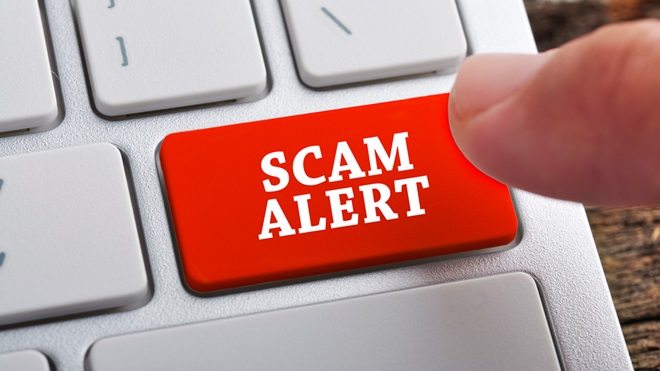Need to know
- Facebook pages offering Dyson products for $4 have no connection with the company
- Facebook pages that lack a blue tick verification symbol should be avoided
- So far this year, Australian consumers have lost $2,458,274 to phishing and related scams
There's one cardinal rule of not-getting-scammed that's stood the test of time and then some – if it sounds too good to be true, it probably is.
The rule would certainly apply to a number of eye-catching fake Dyson Facebook pages currently making the rounds on the internet. The pages offer Dyson products for as little as $4 – a promo that raised a few red flags around here.
We are investigating these fraudulent Facebook pages and offers, and are implementing various measures to mitigate this happening in the future
Dyson spokesperson
The Facebook accounts and sponsored ads (see the example below) have no connection with Dyson, the company tells CHOICE. They appear to be targeting Dyson customers as a loyalty offer.
"We are investigating these fraudulent Facebook pages and offers, and are implementing various measures to mitigate this happening in the future," a Dyson spokesperson says, adding that "privacy is engineered into everything that we do and we take security and our owners' data extremely seriously".

One of the scam Dyson Australia ads on Facebook.
How to avoid the Dyson Facebook scam
Dyson has given the following guidelines for its customers regarding the fake offers:
- If the Facebook account you're viewing does not have a verified badge (blue tick) it is not a verified account and should not be trusted. Here's more information on verified badges on Facebook.
- If you see an unverified Dyson account or ad, you can report the page to Facebook.
- Learn more about counterfeit Dyson websites and machines.
Phishing for your details
Exactly what the scammers are up to is impossible to know unless you've been scammed, but it's probably 'phishing'.
A phishing scam involves crooks trying to trick you into giving them personal information such as bank account numbers, passwords and credit card numbers.
The UK consumer rights group Which? published a story in May this year warning consumers to disregard emails that appeared to be from Dyson but looked to have come from scammers.
Australians have lost almost $2.5m in 2021 so far
As of June 2021, the ACCC had received 9,821 reports of internet scammers trying to get personal information this year through phishing and other scams (including hacking and remote access scams). The total loss for Australian consumers stood at $2,458,274 in June.
Seen a scam?
Report it on the ACCC's scamwatch website.
We're on your side
For more than 60 years, we've been making a difference for Australian consumers. In that time, we've never taken ads or sponsorship.
Instead we're funded by members who value expert reviews and independent product testing.
With no self-interest behind our advice, you don't just buy smarter, you get the answers that you need.
You know without hesitation what's safe for you and your family.
And you'll never be alone when something goes wrong or a business treats you unfairly.
Learn more about CHOICE membership today
Stock images: Getty, unless otherwise stated.



